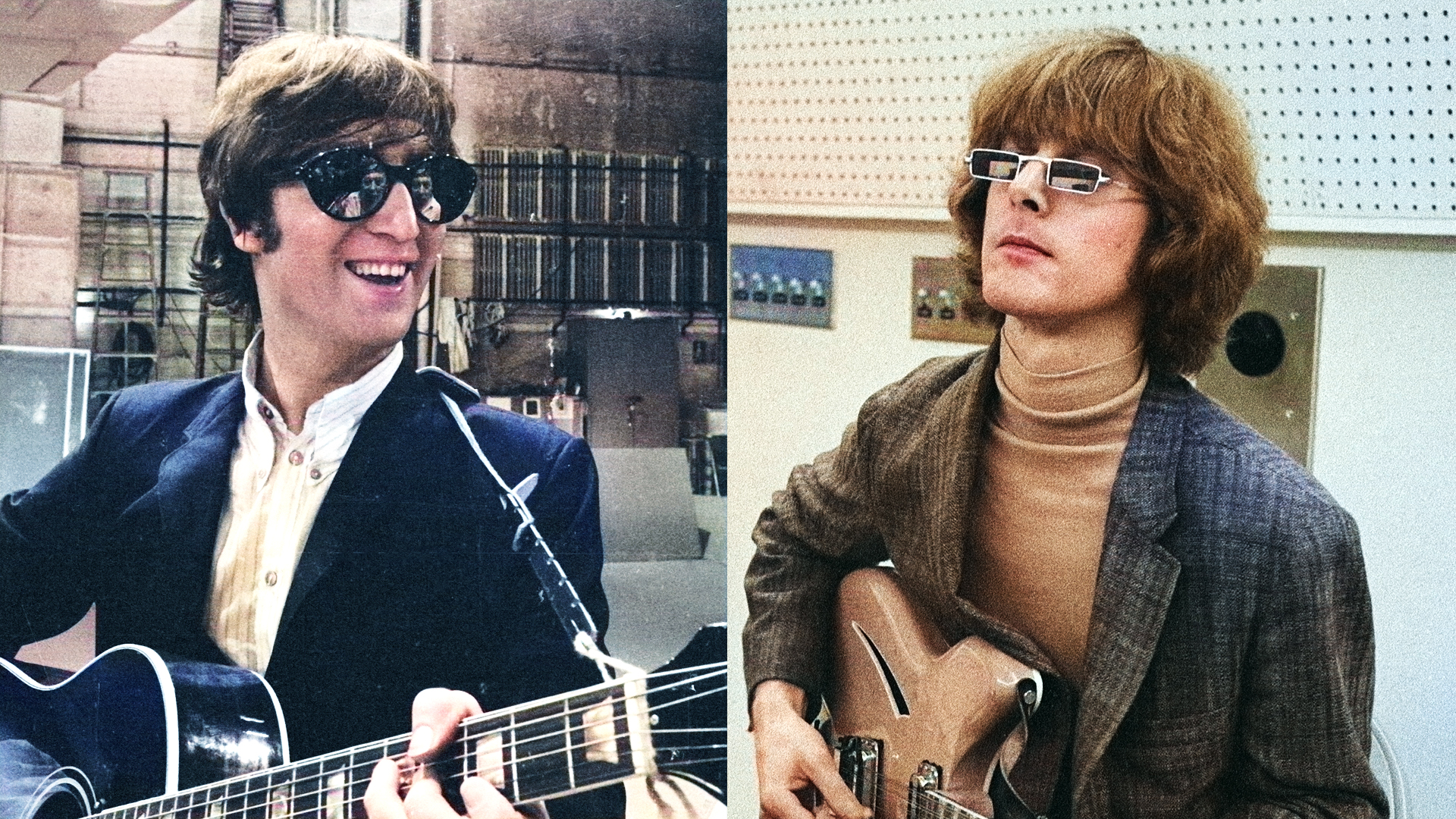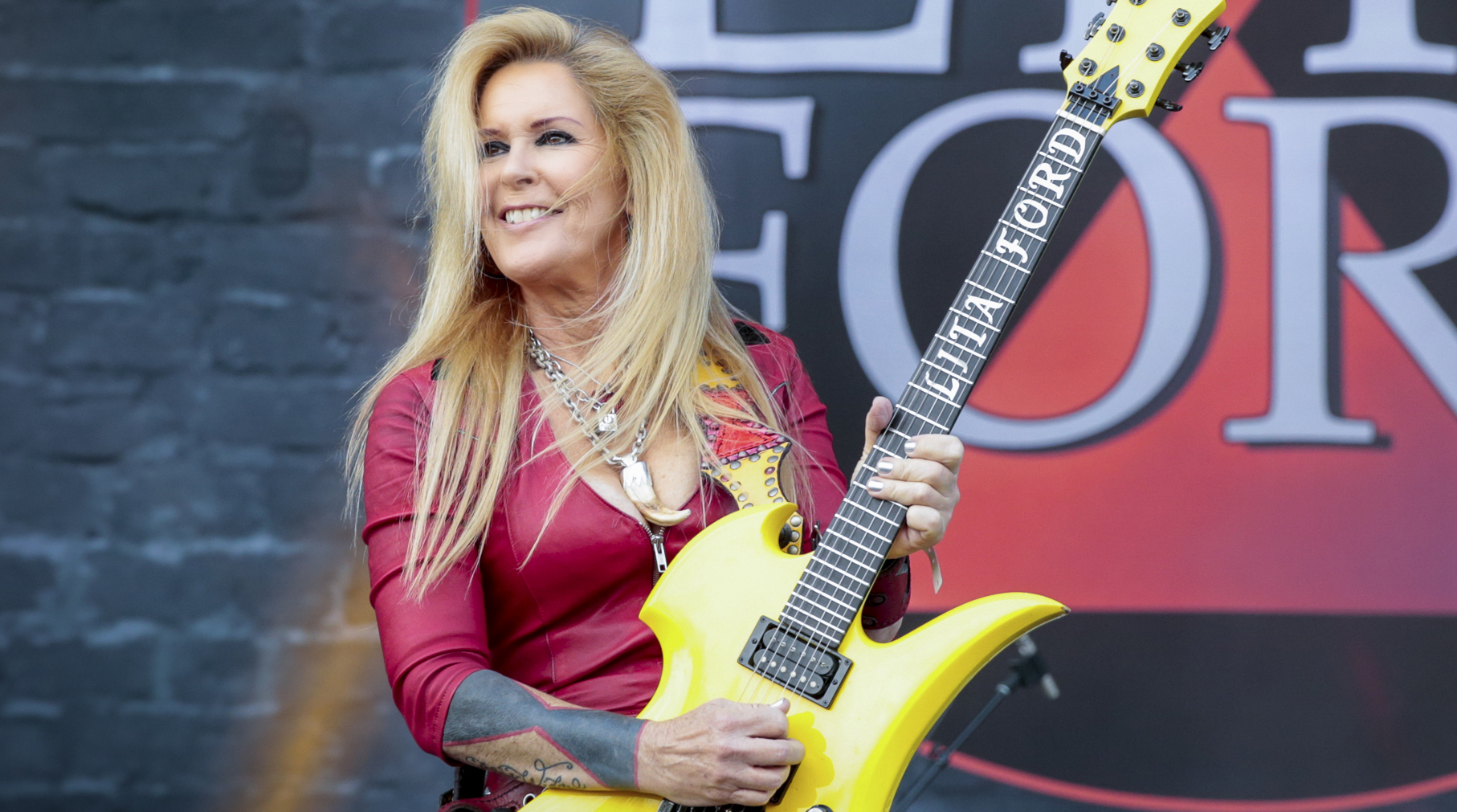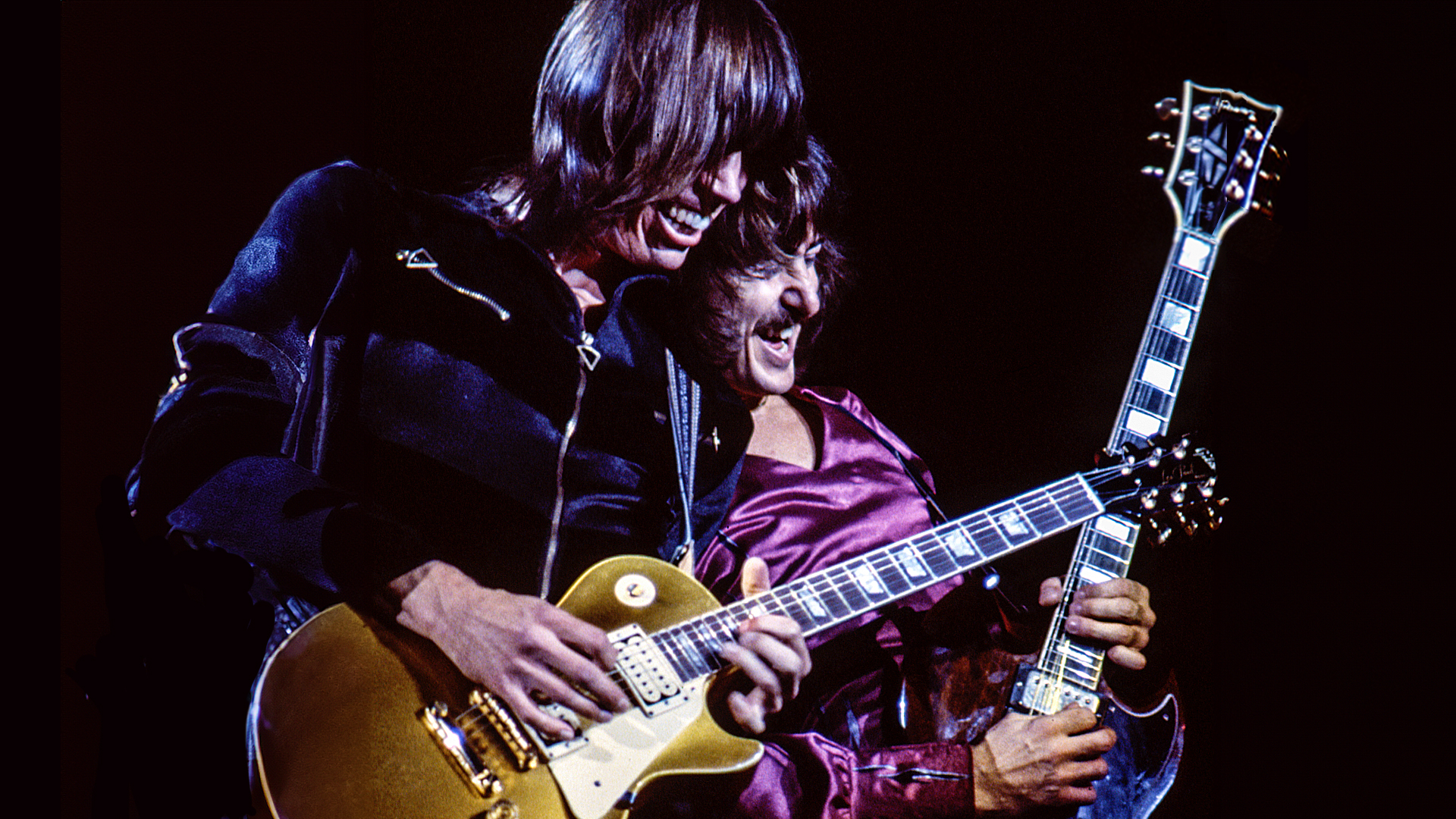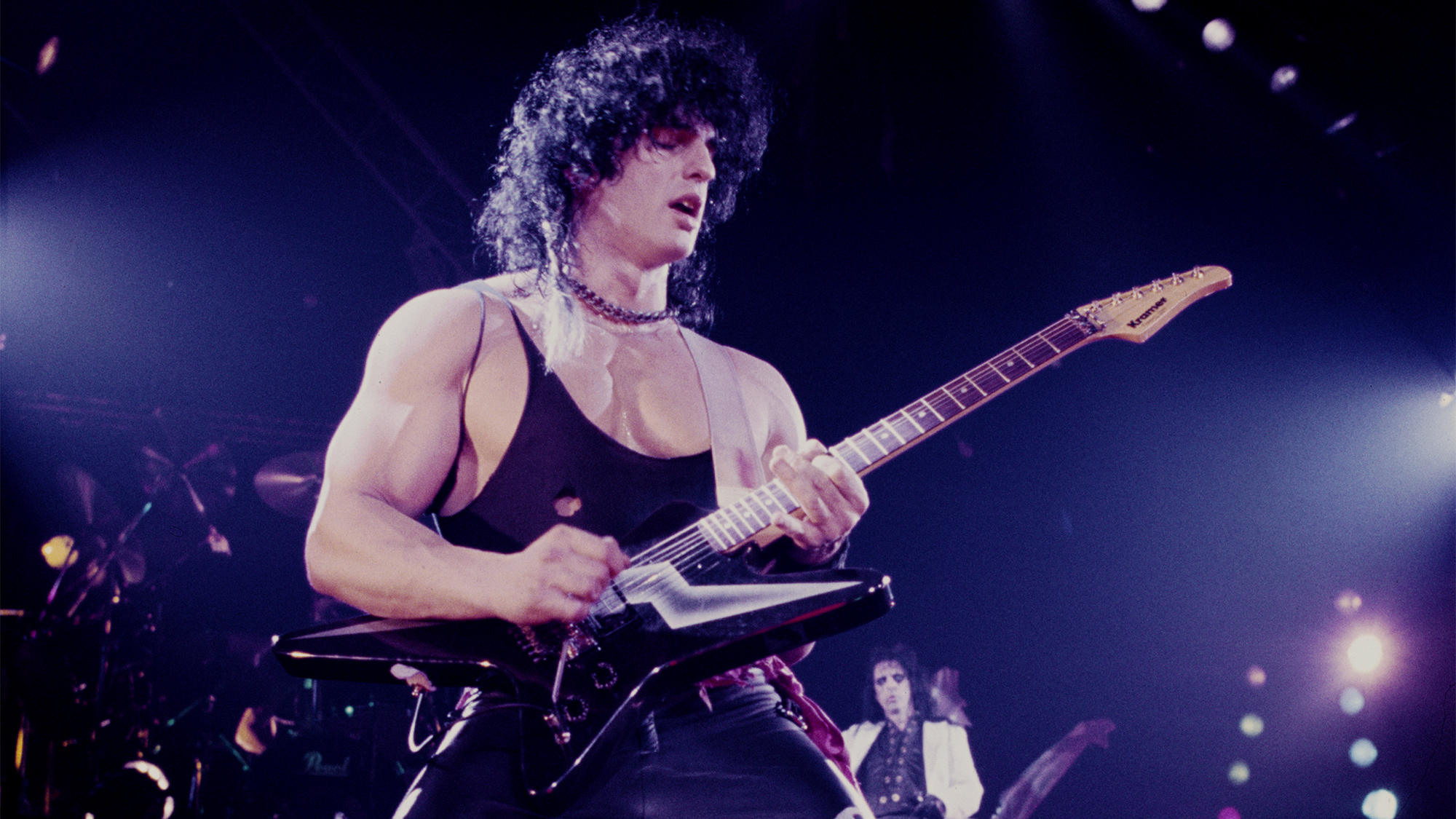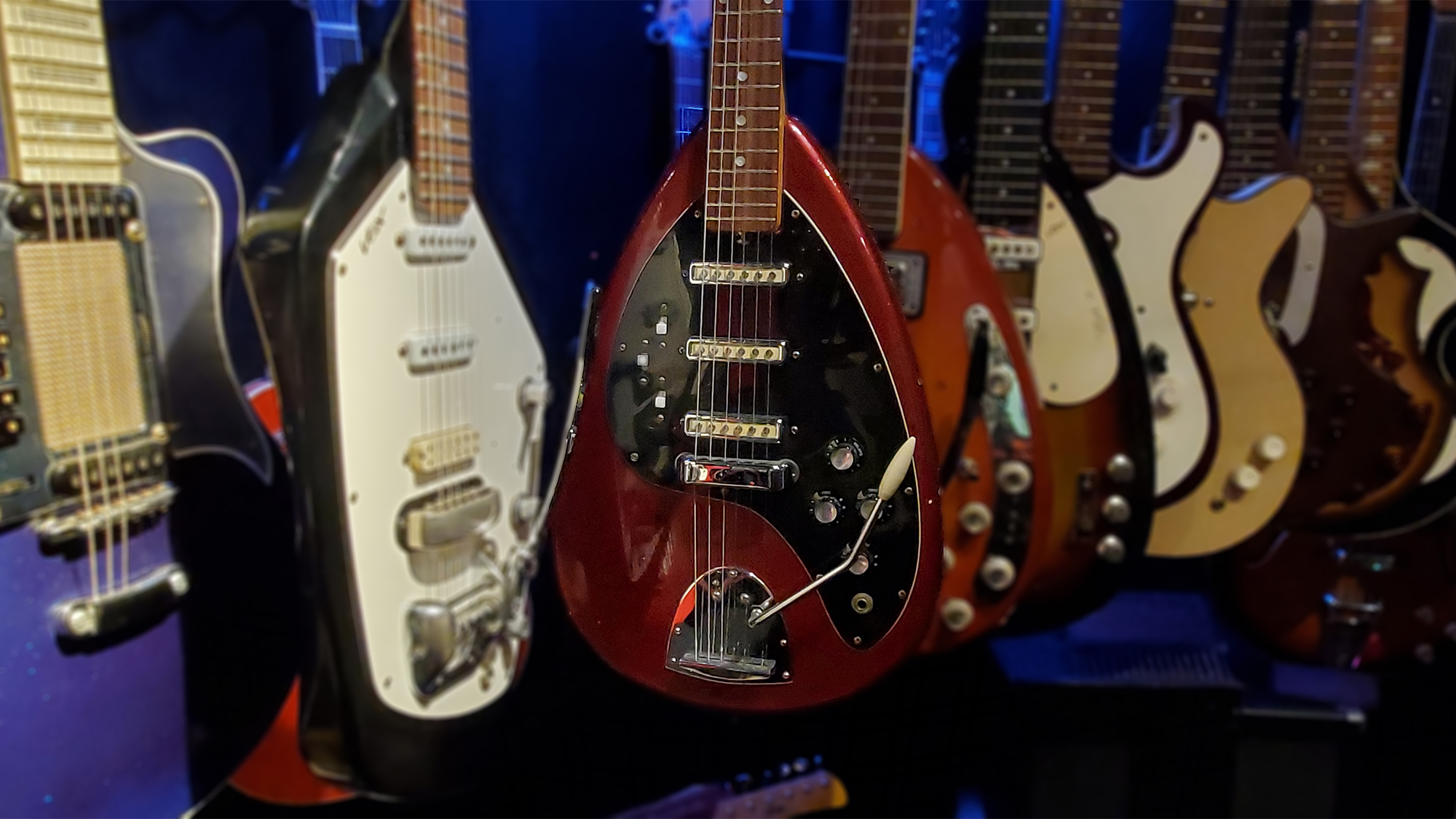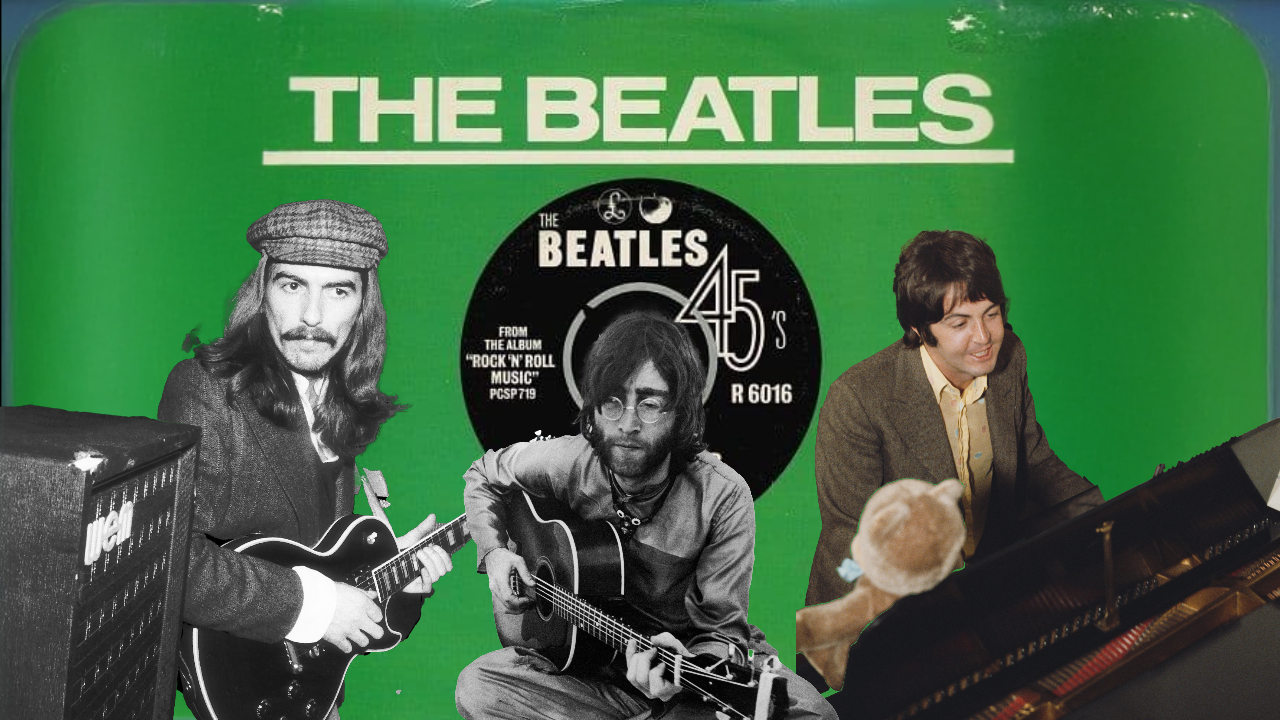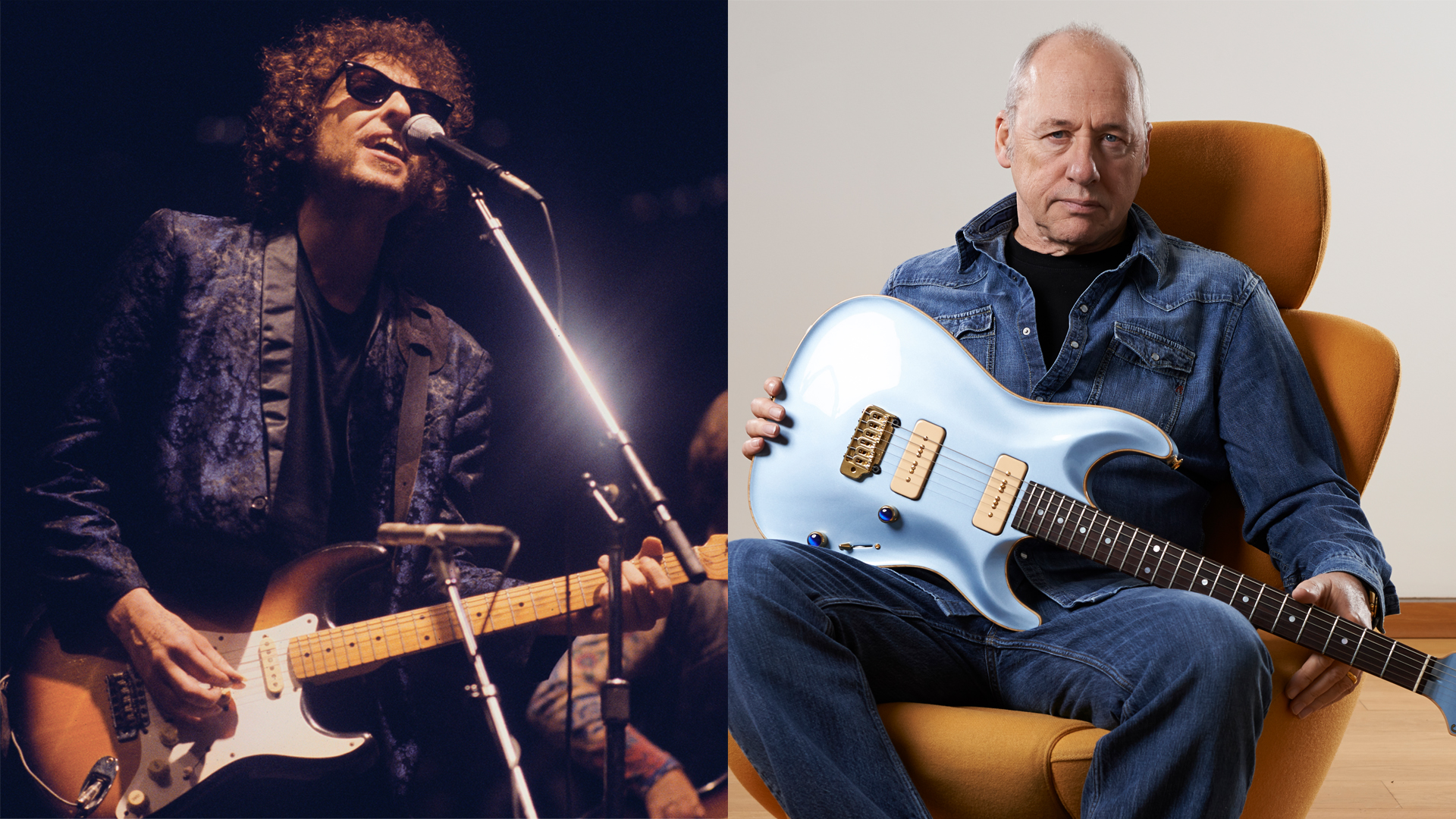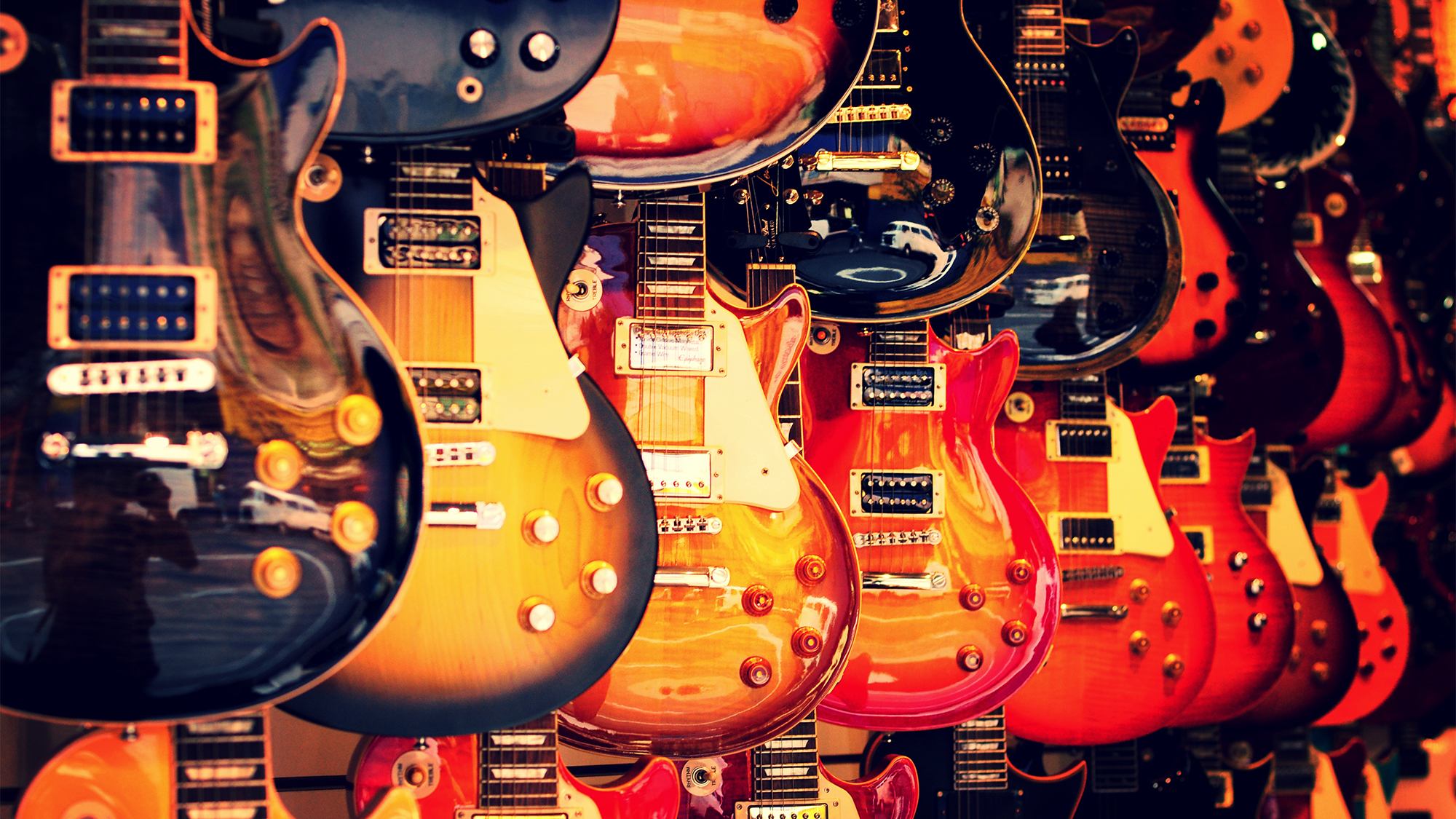What Do David Bowie, Jack White and St. Vincent Have in Common?
They’ve all played off-brand guitars like this Japanese-made Norma EG-421.
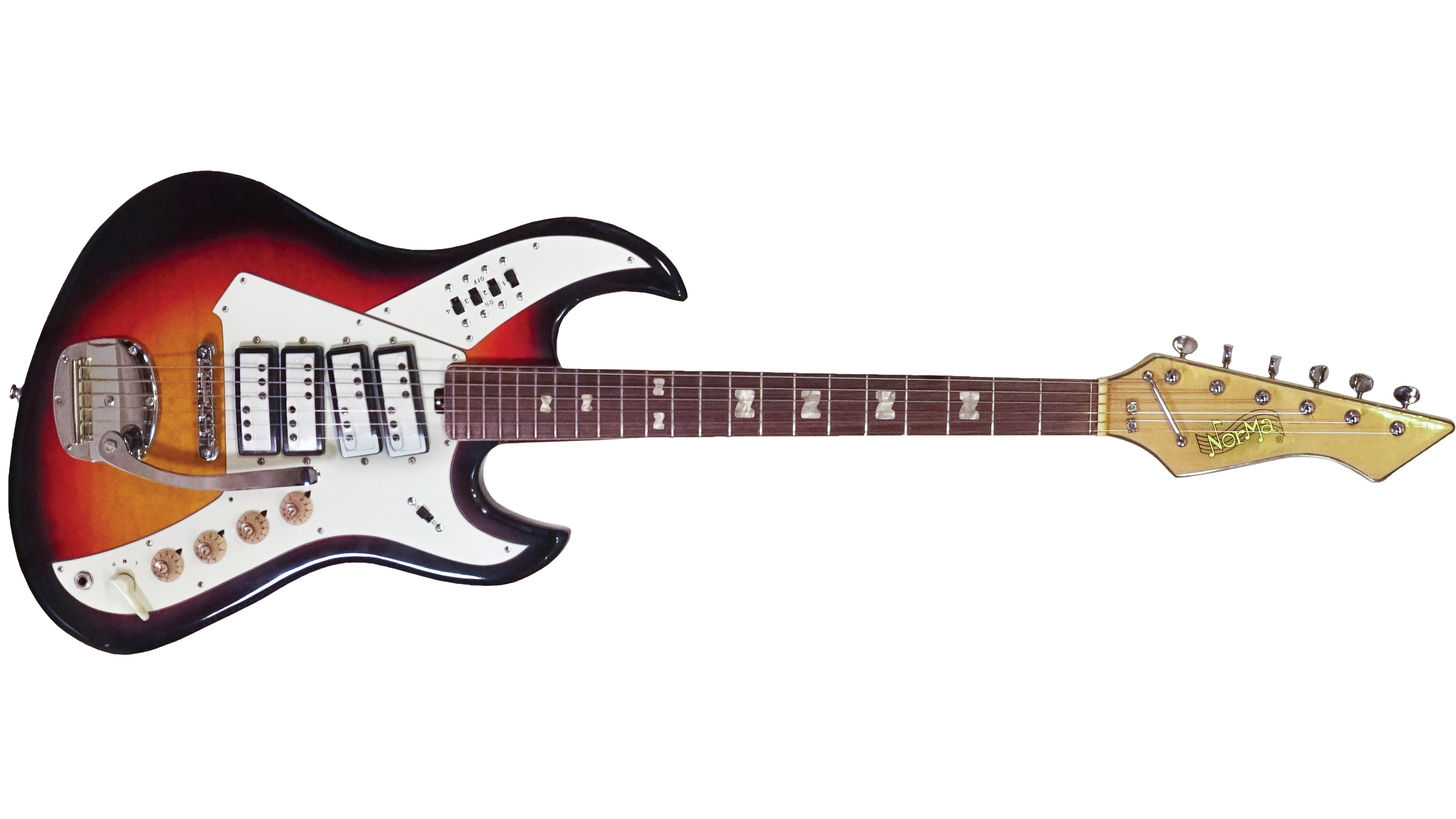
While David Lindley could have played the most expensive guitars available, he regularly sported instruments by Teisco, National and EKO, to name a few.
Since then, many other guitarists – including David Bowie, Jack White and St. Vincent – have followed in Lindley’s footsteps by playing off-brand guitars.
Heck, even EVH played a ’60s Teisco.
All of which makes you wonder: Could this Japanese-made Norma EG-421 electric guitar help someone find his or her voice?
Weirdo Factor
The shape looks rather familiar, but check out the four volume knobs, four on/off rocker switches, three-position tone switch and additional rhythm/solo rocker switch. That’s a lot of controls by anyone’s standards. But when a guitar has four – yes, four – pickups, an embarrassment of switches may not be the weirdest thing it has going for it.
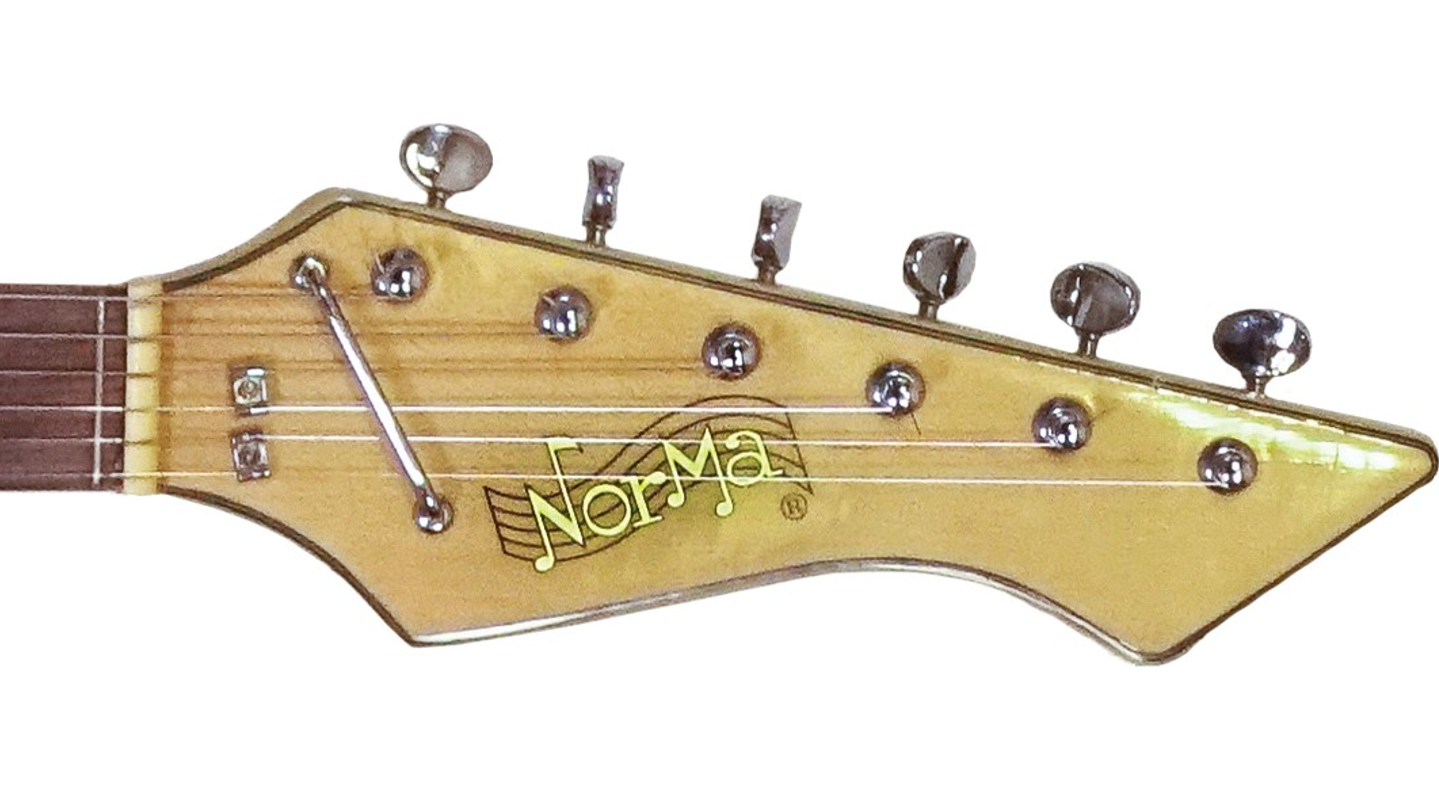
Playability & Sound
By the late 1960s, most of the guitar companies flooding the U.S. market with entry-level guitars began to figure out how to make a decent guitar and still undercut the American manufacturers.
Enter the Norma EG-421.
Get The Pick Newsletter
All the latest guitar news, interviews, lessons, reviews, deals and more, direct to your inbox!
Though some of its parts look similar to Teisco’s, it was made by the Tomba Company in Japan and imported through the Chicago distributor Strum ’n Drum.
The guitar has a slim steel-reinforced maple neck with a fast 22-fret rosewood fingerboard. The mother-of-pearl neck inlays are shaped like the letter N or Z, depending on your viewpoint. The split pickups look like dominoes, and the headstock is large and stylish.
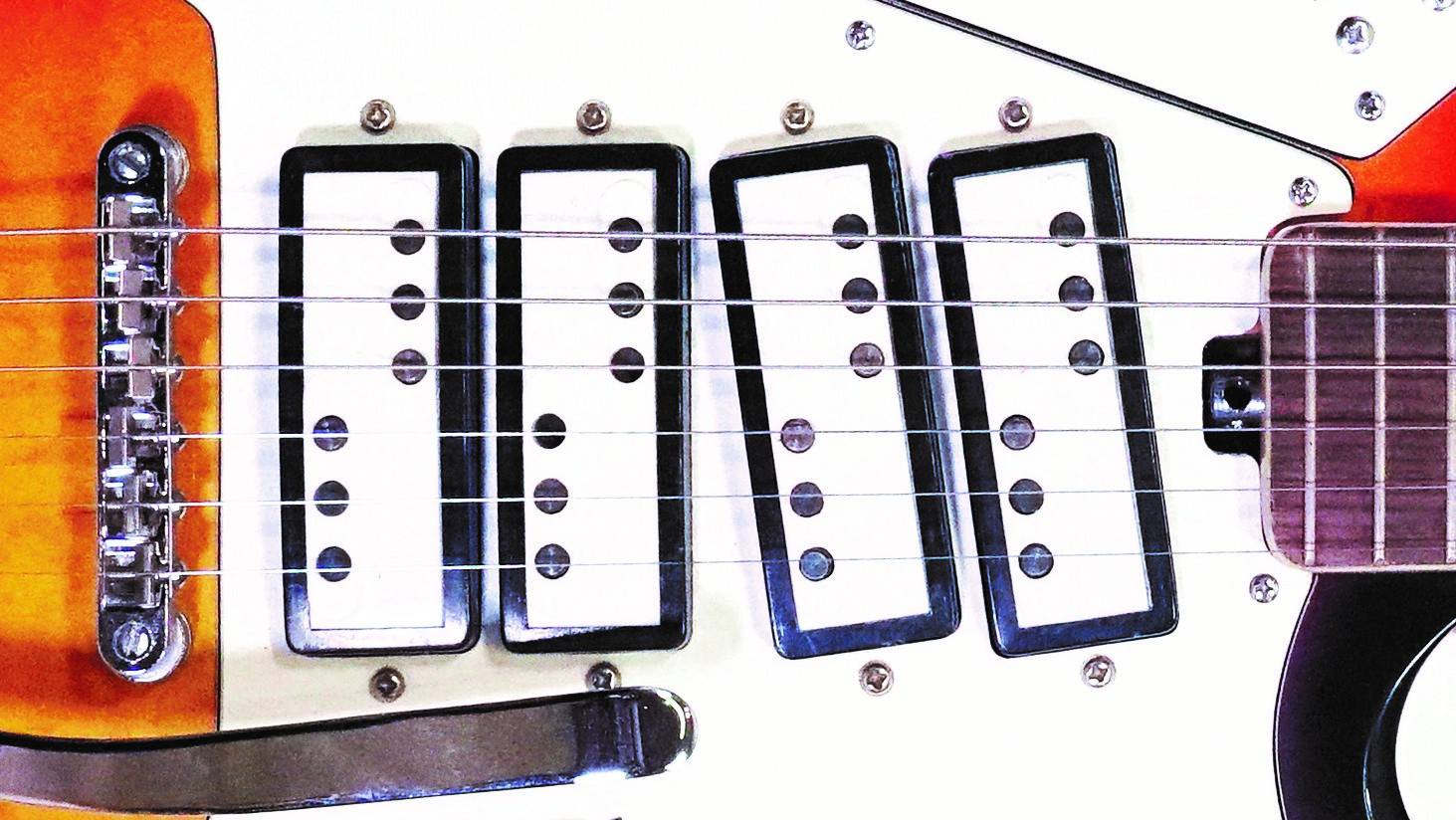
But of course, the burning question is, How does it sound?
Let’s just say that, when it comes to tone, the Norma EG-421 gives you a lot of choices. The pickups all sound rather thin, but in an interesting way. Each has a dedicated volume knob and kill switch and can be combined with the others in any configuration you want.
That’s where the fun begins.
For instance, turning a pickup’s volume up full and adjusting the volume of an adjacent unit will throw the first pickup out of phase in a grungy sort of way. The rotary tone switch offers three preset EQs that change not only the tone but also the phasing. On top of all that, the rhythm/solo switch can either boost or cut the level, depending on the pickup configuration.
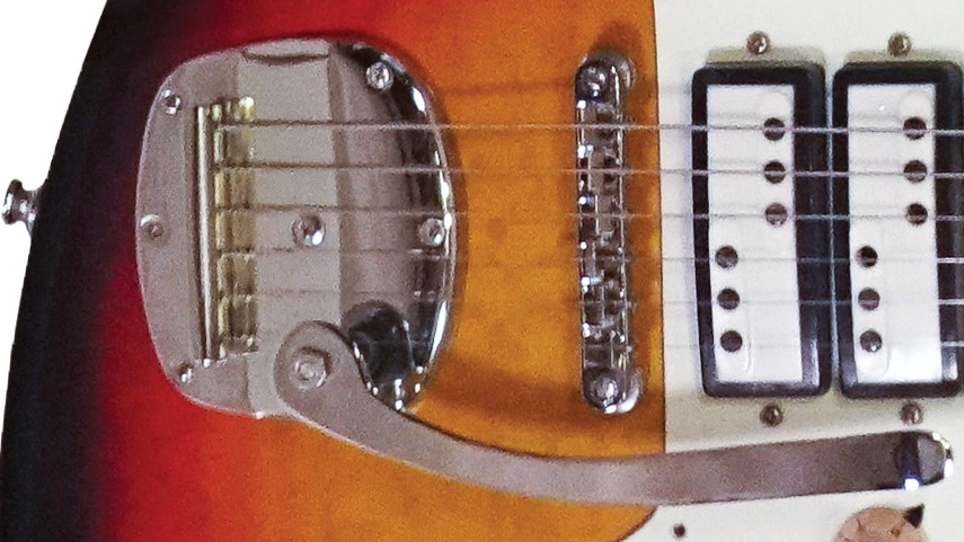
The tremolo works nicely, dropping everything down about a half step. The bridge on this example has been upgraded to a Tune-o-matic style, and the previous owner added two string trees; the original “towel rack” string retainer didn’t offer enough tension for the higher four strings.
With clean tone or slight overdrive, this guitar is sparkly, fun and different. Unfortunately, the pickups are very microphonic and have difficulty at loud volumes.
Value
Back in 1968, this guitar, while not exactly cheap, cost a fraction of what you might have spent on an American guitar with many fewer features. A few years back you might have paid about $400 for one, but now they can fetch upward of $800.
Why it Rules
Like so many guitars, the Norma EG-421 plays great, sounds unique and looks dashing. And if it ends up providing you with your signature sound, so much the better!
“They’re well-built guitars and sound great. The real surprise is why more guitarists don’t know about them today.” This 1965 budget axe is a vintage gem that’s becoming a hot commodity — and for good reasons
“A guitar with a wonderful history and many stories to tell”: Robert Plant is selling gear for charity and only one guitar remains – a golden-era Strat with a storied history
